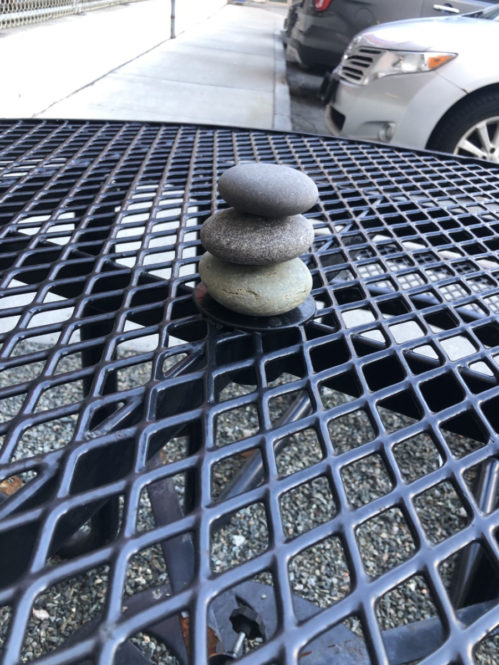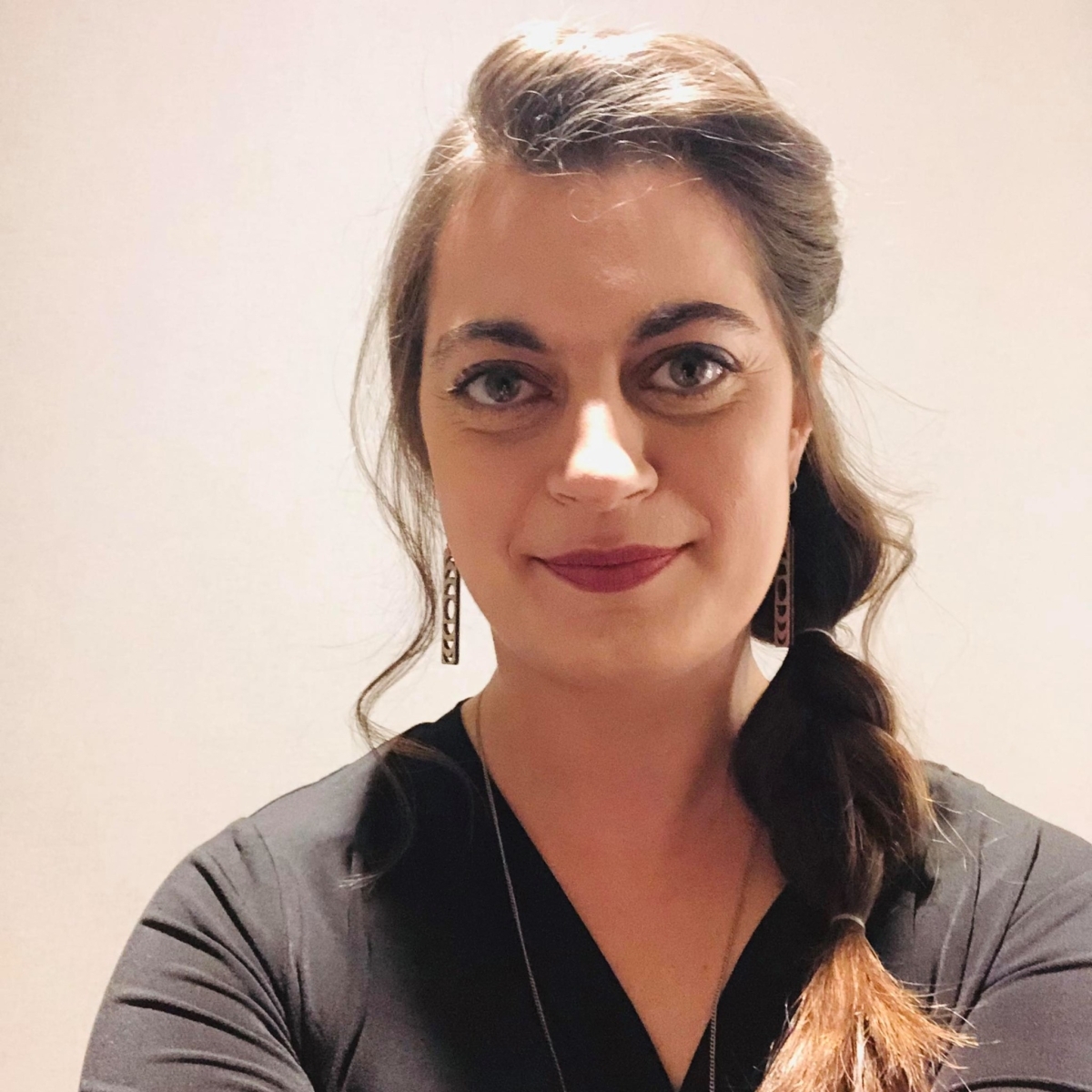How a Hospital Chaplain Navigates Grief — with Poetry, Silence and Zen
April 19, 2022

In a course on Buddhist grief counseling offered by the Toronto Centre for Applied Buddhism, Sister Thich nu Tinh Quang spoke about what we wordlessly hold in our throats — that moment of ache before crying. I would add, too, the throat is a gathering of unshed tears, of each minute and large ghost of grief that accumulates as we pass through a lifetime. This moment of ache before we cry — or before we give voice — reminds me of the immediate stillness just after an impactful poetry reading, that threshold where no one yet breaks the silence with reflexive language. That threshold buzzes a bit, not unlike the humming ache in a throat before tears, or the silent, leadenly still ache there from unshed ones.
Share
Related Articles
American Civic Life
How the Role and Visibility of Chaplains Changed Over the Past Century
American Civic Life
Are Chaplains Religious Leaders? Most Americans Say Yes in New Survey
Higher Education
Dr. Janet Fuller – Dreamer, Trailblazer, and Multifaith Pioneer
As an interfaith chaplain with Zen Buddhism undergirding the vocation, poetry has felt akin to prayer to me. Familiar language takes us so far in an experience (especially one of suffering), and then there’s an edge, a cliff, where there is nothing to say or something cannot be said – dipped just beyond that cliff’s edge, to me the place where prayer and poetry reside in and arise from.
Poetry is made as much of wordlessness as words, and sometimes the words/voice feel present to accentuate the silence/space around them – a place where we have nothing to “say,” can be gathered in poetry.
In my own life, writing poetry has helped me organize experiences as a chaplain, and has helped me grieve. When I cannot cry, I write. The words become a scattered weeping, stars made sparks unswallowed by the night’s sea, a roiling flurry of snow in the cold New England wind, lanterns to see by. The page can hold tear, scream, sigh, and love alike.
***
I met “J” (I’m using initials to protect privacy) when she was intubated and sedated in the intensive care unit, unable to speak. Her partner “M” and I connected through the weeks she was there. He told me stories of how they met and what their life was like, and we shared tears. Some doctors in the ICU credit J’s waking up enough to transition to rehab to M’s being by her side. She woke paralyzed from the waist down, having had a stroke during her hospitalization. When she returned to the hospital from rehab for a risky back surgery, it felt a bit miraculous to get to know her voice after knowing her only through another’s stories. One day during a visit, she looked out the window from the hospital bed. “If I don’t wake up from the surgery, it’s okay. I don’t think death is such a bad way. It’s part of life, like the trees coming and going. If I don’t wake up, I want you to be the one to call M. I remember your conversations in the ICU; he trusts you.” Later that day, I brought her this poem by Cid Corman, as it reminded me of our conversation:
The stars are there not
to remind us but to let
us know what this is.
There is no end and
never was a beginning–so
here we are–amidst.
Nothing ends with you–
every leaf on the ground
remembering root.
The next week, walking down the hospital hallway near J’s room, a nurse stopped me. “Rebecca, I read that poem you gave J; she asked me what I thought of it. It gave me goosebumps … but I don’t understand poetry.” I replied that there are many ways to understand poetry, that goosebumps are a beautiful and profound way. I shared a favorite quote from the 12th century Soto Zen Buddhist Dogen, that sometimes teachings may be “dark to the mind but radiant to the heart” – that sense of feeling a text’s truth in a way beyond reason or intellect. Part of what gave her goosebumps is the way this text intersected the living moment: J’s warm personality, outreaching to everyone who entered her orbit (that the nurse only read this poem because J’s voice invited her to and the poem had been alive to J’s heart), the winter out the window, the chaplain who knew this floating nurse’s name (which surprised her), J’s lengthy stay in the hospital such that people got to know her more than most who pass through the acute care setting. This poem came alive anew amid the ingredients of this situation, causing goosebumps. J told me she’d been having all her caretakers read it and she asked each of them what they thought. She held it close to her the way I see some holding the Bible near.

Waiting for the shuttle to St. Elizabeth’s, I noticed three stacked rocks in the center of each table, reminding me of Buddha statues. Since then, whenever they fall apart or are missing a rock, I rearrange them back to Buddhas. It feels like a meditative exercise before or after suffering encountered in the hospital, these rocks as guardians. Photo courtesy
(I was away on a three-day silent retreat when J died, in the ICU, in between her three-part back surgery … Before I’d left, I felt that she might pass by the way she looked at me, and pointed from me to M, though again intubated and unable to speak. During outside walking meditation at the retreat, when a large red sun set, I knew she had passed. I felt her in the light. I felt her being at peace. I would later find it was that time that she had died. Her story does not end with her death.)
***
In the ICU one day, a nurse told me her patient was “CMO,” a term meaning “comfort measures only,” not very responsive, and the daughter would be coming to visit the next day. I phoned the daughter to see if there were spiritual or religious needs we could honor at this time. She said, “No, he’s not religious.” “What makes him feel most himself?” I asked. “What does he love when he is well?” She said without pause, “He loves nature and animals. It has been so hard for him being sick because he hasn’t been able to walk in the woods.” I found this poem by Mary Oliver, read it at his bedside while he labored for each large breath but remained asleep.
Sleeping in the Forest
I thought the earth
remembered me, she
took me back so tenderly, arranging
her dark skirts, her pockets
full of lichens and seeds. I slept
as never before, a stone
on the riverbed, nothing
between me and the white fire of the stars
but my thoughts, and they floated
light as moths among the branches
of the perfect trees. All night
I heard the small kingdoms breathing
around me, the insects, and the birds
who do their work in the darkness. All night
I rose and fell, as if in water, grappling
with a luminous doom. By morning
I had vanished at least a dozen times
into something better.
After reading, I offered a blessing that in the kingdom of breathing he hears around him in caretakers, and the sounds of the machines, may his spirit be unburdened and find peace. Oliver’s poem feels like a prayer — a hope — for transition, from night to day, life to death, suffering to something better.
Poetry feels like an antidote to the ways language is manipulated in our world for political and other purposes and an antidote to the ways everyday transactional exchanges import reflex, conditioned within societal power structures. Like the Psalms, poetry holds human experience and helps people feel less alone in their most isolated and painful times. (That which knows sadness can accompany sadness.)
I conclude by offering one of my own poems about a chaplaincy encounter:
[The prayers are all out of order]
but they still count.
A life is an accumulation of mistakes.
To say nothing of the phenomenon
of missing what’s right next to you.
An old woman
who suffered a stroke. She looks out at me
with one working blue eye. I read her a favorite poem
—one time it helped her sleep.
She is working overtime and soon we will all
be on the other side of time.
She smiles with half her face—listen
(Even in half the whole.)
She watches me in a way that is a blessing.
Her seeing me changes me.
What on earth beauty is it for us to treat one another like we are dying—
Snowflakes half pollution half hidden bright miracle—
I will stare out the window at the empty branches
in the snow with her. When winter arrives
I will be new again,
unseen moon in the sky’s dark sea.

Rebecca Doverspike
Rebecca Doverspike works as an Interfaith Chaplain at St. Elizabeth’s Medical Center in Boston where she draws from Zen Buddhist practice. She holds a Master of Divinity degree from Harvard Divinity School and a Master’s in Fine Arts in creative nonfiction from West Virginia University. Her poetry chapbook, “Every Present Thing a Ghost,” was published in 2019 by Slapering Hol Press. More of her poetry can be found in Ruminate, Leveler, Valley Voices, Midwest Review, 5×5 Literary Magazine, Peripheries, and elsewhere.



